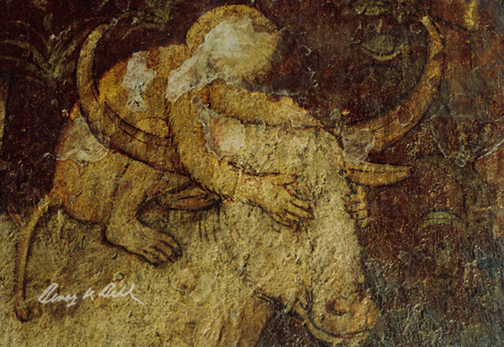Bats not to blame, humans responsible

Photo credit: Benoy K Behl
Benoy K Behl
Day-before-yesterday I read a report by Profs. Andrew Cunningham and Kate Jones, both of London, which very clearly explained the responsibility of us human beings for the present crisis. They also explained how other viruses could also spread, even after the present disaster was past. Besides dealing with the present situation, I thought it is time to introspect and to understand how to plan for a healthy and happy tomorrow.
It was easy to understand what they said about the c
Animals which are used to flying and running free, today are often found in terrible circumstances: sometimes in cages one on top of another. Some animals like chicken often spend their entire life cooped up in a crowded space and not allowed to sleep, so that they will keep eating and become fat soon for our tables.
The circumstances are indeed terrible and sometimes even terrifying for the animals. Obviously, their stress levels will be extremely high. Consequently, their resistance and response to disease will be greatly impaired. This would be a breeding ground for viruses, which could one day jump to human beings, as we have seen just now.
This is a time when one may like to remember ancient thought and to recall how, in Indian philosophy, we have regarded all the living beings of the world as deeply united. There is no separate compartment for animals or birds. They are all ‘jeeva’, living beings. We are helped to understand this by the concepts of our own past births in the form of different animals. Even the Buddha is seen in previous births as a buffalo, as a monkey, a boar, an elephant and so many other animals. We are indeed taught to respect the dignity and emotions of all the animals and birds around us.
Please see the photograph of Mahisha Jataka in a 5th century painting above. Gautama Buddha is seen in a previous birth as a buffalo. The pesky monkey troubles him but the kindly bodhisattva does not mind. In fact, you will see a smile on the face of the Mahisha.
If we are guided daily by love, in all that we do, all will be fine in this world and there will be no terrible epidemic, after this one.
Benoy K Behl is a filmmaker, art-historian and photographer who is known for his tireless and prolific output of work over the past 43 years. He has taken over 52,000 photographs of Asian monuments and art heritage and made 144 documentaries which are regularly screened at major cultural institutions worldwide


